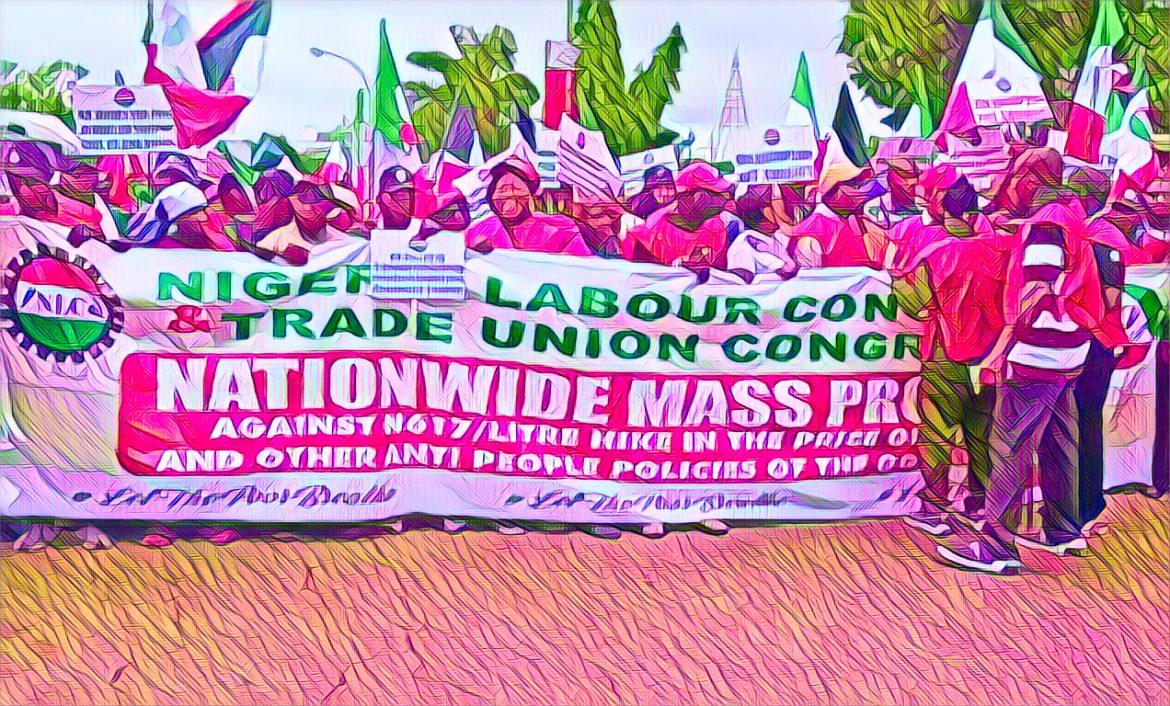Nigeria is facing a major crisis as oil workers have joined a nationwide strike over the government’s decision to scrap the fuel subsidy and increase the petrol price. The strike, which started on October 3, has paralyzed the country’s economy and disrupted essential services.
The Nigeria Labour Congress (NLC) and the Trade Union Congress (TUC), the country’s two largest workers’ unions, called for an indefinite strike after the government failed to meet their demands. The unions want the government to reverse the fuel price hike, which they say has caused massive suffering and hardship for millions of Nigerians.
The removal of the fuel subsidy in May led to a sharp rise in the cost of petrol, from 86.5 naira ($0.24) per liter to 145 naira ($0.40) per liter. This has also increased the prices of food, transport, electricity, and other goods and services, as most businesses and households rely on petrol generators for power.
The government says the subsidy was unsustainable and draining its finances, especially amid the COVID-19 pandemic and low oil prices. It argues that the subsidy only benefited a few wealthy individuals who smuggled cheap fuel across the borders. It also says that scrapping the subsidy will free up infrastructure and social development funds.
However, the unions and many Nigerians are skeptical of these claims, saying that previous attempts to remove the subsidy resulted in corruption and mismanagement of public funds. They also accuse the government of being insensitive to the plight of the poor and vulnerable, who are already struggling with high inflation, unemployment, and insecurity.
The strike has received widespread support from various sectors of society, including civil society groups, students, lawyers, doctors, teachers, and journalists. The oil workers’ union, representing workers in the oil and gas industry, joined the strike on October 5, threatening to shut down oil production and exports if the government does not heed their demands.
Nigeria is Africa’s largest oil producer and exporter, with an output of about 1.4 million barrels per day. The oil sector accounts for about 10% of its gross domestic product (GDP) and more than 90% of its foreign exchange earnings. Any disruption in oil operations could have serious consequences for the country’s economy and international obligations.
The government has appealed to the unions to suspend the strike and resume dialogue, saying it is open to finding a peaceful and lasting solution to the impasse. It has also deployed security forces to maintain law and order and prevent violence or vandalism during the strike.
However, the unions have vowed to continue the strike until their demands are met. They have also urged Nigerians to remain calm and peaceful, saying they are fighting for their rights and welfare.
The strike has drawn attention to Nigeria’s deep-rooted problems, such as poor governance, corruption, inequality, and underdevelopment. It has also exposed the fragility of its social contract and the need for urgent reforms.
Some analysts believe that the strike could be an opportunity for constructive dialogue and negotiation between the government, the unions, and other societal stakeholders. They say both sides need to show flexibility and compromise to reach a win-win situation that benefits all Nigerians.
Others fear the strike could escalate into a violent confrontation or a political crisis that could destabilize the country’s democracy and security. They warn that both sides must exercise caution and restraint to avoid further damage or loss of lives.
As Nigeria marks its 63rd independence anniversary on October 6, many Nigerians hope their country will overcome this challenge and emerge stronger and more united.
Source: Business Insider Africa


